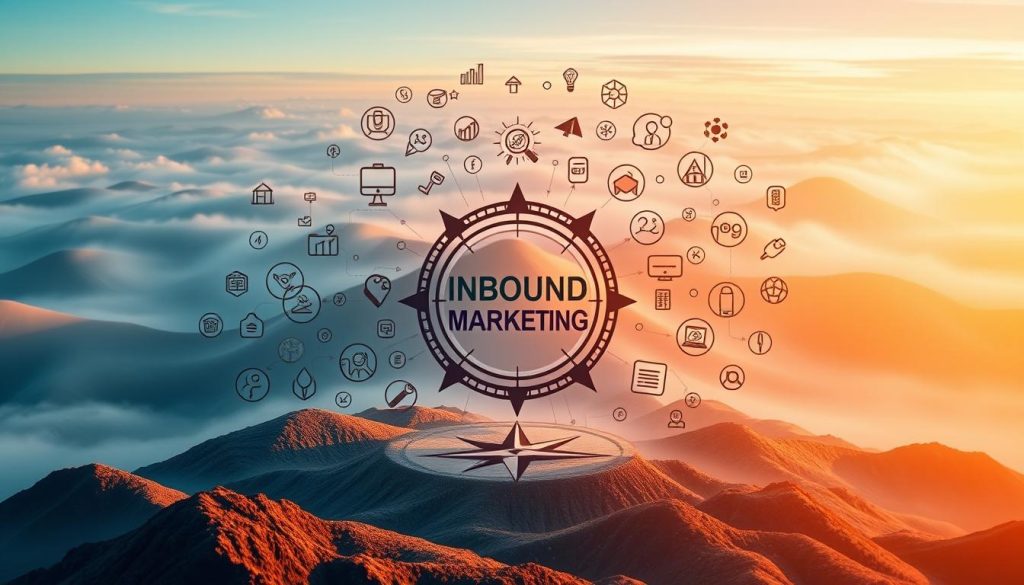In today’s interconnected world, businesses are constantly seeking innovative ways to connect with their audiences and drive growth. As a professional looking to enhance your career or business, understanding the fundamentals of digital marketing is crucial.
A well-crafted marketing strategy can make all the difference in achieving your goals. By leveraging social media and other digital channels, you can reach and engage with your target audience more effectively. For more insights on finding clients online, you can explore resources such as this guide on online client acquisition.
Table of Contents
Key Takeaways
- Understand the importance of a tailored marketing strategy for business success.
- Learn how to leverage social media to reach your target audience.
- Discover the role of digital marketing in modern business.
- Explore effective techniques for creating engaging digital campaigns.
- Gain insights into measuring the success of your marketing efforts.
Understanding Digital Marketing in Today’s Business Landscape
Digital marketing has become a cornerstone of contemporary business practices. As technology continues to advance, companies are leveraging digital channels to reach their audiences more effectively. This shift has led to the creation of new roles and specializations within the marketing digital domain.
What is Digital Marketing?
Digital marketing encompasses all marketing efforts that use an electronic device or the internet. It involves leveraging online channels such as search engines, social media, email, and websites to connect with current and prospective customers. Effective digital marketing requires a comprehensive understanding of the target audience and the ability to create personalized content that resonates with them.
Businesses use digital marketing to promote their brand, products, or services. This is achieved through various strategies, including content marketing, search engine optimization (SEO), pay-per-click advertising (PPC), and social media marketing.
The Evolution of Digital Marketing
The evolution of digital marketing has been rapid and transformative. From the early days of the internet to the current era of AI-driven personalization, the field has seen significant advancements. Key milestones include the introduction of banner ads in the 1990s, the rise of social media, and the shift towards mobile-first strategies.
| Year | Milestone | Impact on Digital Marketing |
|---|---|---|
| 1990s | First banner ads | Introduced display advertising |
| 2000s | Rise of social media | Enabled targeted advertising |
| 2010s | Mobile-first strategies | Shift towards responsive design |
Understanding this evolution provides valuable insights into current best practices and future trends in digital marketing. As technology continues to evolve, businesses must adapt their marketing strategies to remain competitive.
The Core Components of Digital Marketing
In today’s digital landscape, businesses must understand the core components that drive successful online marketing. Digital marketing encompasses a variety of strategies and techniques, all working together to promote products or services online effectively.
Website and Content Marketing
A well-designed website is the cornerstone of any digital marketing strategy. It serves as the hub for all online activities, providing a platform for content marketing. High-quality, relevant content attracts and engages the target audience, driving traffic and generating leads. Effective content marketing involves understanding the needs and preferences of your audience and creating content that resonates with them.
Search Engine Optimization (SEO)
SEO is critical for ensuring that your website and content are visible to your target audience. By optimizing your website and content for search engines, you can improve your rankings in search results, driving more organic traffic to your site. This involves using relevant keywords, optimizing meta tags, and ensuring your site is mobile-friendly and has a good user experience.
Social Media Marketing
Social media marketing leverages platforms like Facebook, Instagram, Twitter, LinkedIn, and TikTok to build brand awareness, engage with customers, and drive website traffic. Each platform offers unique advantages and reaches different demographic segments, requiring tailored content strategies. Effective social media marketing combines organic content with paid promotion to maximize reach and engagement.
To illustrate the importance of these components, consider the following table that highlights their key benefits:
| Component | Key Benefits |
|---|---|
| Website and Content Marketing | Attracts and engages the target audience, drives traffic, generates leads |
| Search Engine Optimization (SEO) | Improves search engine rankings, drives organic traffic |
| Social Media Marketing | Builds brand awareness, engages customers, drives website traffic |
By understanding and effectively utilizing these core components, businesses can develop a comprehensive digital marketing strategy that drives success in the online marketplace.
Key Digital Marketing Channels and Strategies
As the digital world continues to evolve, understanding key marketing channels and strategies is crucial for business success. In today’s digital landscape, businesses must be adept at navigating various marketing channels to effectively reach and engage their target audience.
Email Marketing Campaigns
Email marketing remains a vital digital marketing channel, allowing businesses to directly communicate with their audience. Effective email campaigns are personalized, timely, and offer value to the recipient. By segmenting their email list, businesses can tailor their messages to specific groups, increasing the likelihood of conversion. Email marketing campaigns can be used to nurture leads, promote products, and build brand loyalty.
Pay-Per-Click Advertising (PPC)
PPC advertising is a powerful tool in the digital marketing arsenal, enabling businesses to reach potential customers actively searching for their products or services. By bidding on relevant keywords, businesses can ensure their ads appear at the top of search engine results pages, driving targeted traffic to their website. Effective PPC campaigns require ongoing optimization to ensure a strong return on investment.
Social Media Advertising
With billions of users on platforms like Facebook, Instagram, and LinkedIn, social media advertising offers unparalleled opportunities for businesses to reach their target audience. By leveraging the sophisticated targeting options available on these platforms, businesses can deliver highly relevant ads to users based on their interests, behaviors, and demographics. This form of marketing is particularly effective for building brand awareness and driving website traffic.
Mobile Marketing
The rise of mobile devices has made mobile marketing an essential component of any digital marketing strategy. With mobile devices accounting for over 56% of global web traffic in 2021 and projected to reach 61% by 2023, businesses must optimize their marketing efforts for mobile users. Effective mobile marketing strategies include responsive website design, app-based marketing, location-based marketing, and SMS campaigns tailored to the mobile user experience. By leveraging these strategies, businesses can deliver timely, relevant messages to users on-the-go, enhancing their overall marketing efforts.
By understanding and leveraging these key digital marketing channels and strategies, businesses can improve their online presence, engage more effectively with their target audience, and drive conversions. Whether through email campaigns, PPC advertising, social media advertising, or mobile marketing, the key to success lies in delivering relevant, timely messages to users, thereby enhancing the overall effectiveness of their marketing efforts.
Inbound Marketing: Attracting Customers Naturally

Inbound marketing focuses on drawing customers in with relevant and helpful content. This approach is centered around creating a customer-centric marketing stratégie that fosters natural attraction, rather than interrupting potential clients with unsolicited messages.
The Four Pillars: Attract, Convert, Transform, Retain
The inbound marketing methodology is built around four key pillars: attract, convert, transform, and retain.
- Attract: Draw in the right people with valuable content and experiences.
- Convert: Turn visitors into leads with compelling calls-to-action.
- Transform: Nurture leads into customers through personalized communication.
- Retain: Delight customers to become promoters of your brand.
Content Strategy for Inbound Success
A successful inbound contenu strategy begins with detailed buyer personas that define your ideal customers’ challenges, goals, and information needs at each stage of their journey.
| Content Type | Buyer’s Journey Stage | Purpose |
|---|---|---|
| Awareness Content | Awareness | Educate about problems |
| Consideration Content | Consideration | Explore solutions |
| Decision Content | Decision | Showcase your offerings |
« Content is the fuel for your inbound marketing strategy. A solid content strategy is key to inbound marketing success. »
By diversifying contenu formats and maintaining a consistent publishing schedule, businesses can engage their audience effectively and drive marketing digital success.
Data-Driven Digital Marketing
In today’s digital landscape, making data-driven decisions is crucial for successful digital marketing. By leveraging analytics and performance measurement, businesses can optimize their marketing strategies to achieve better results.
Analytics and Performance Measurement
Analytics play a vital role in understanding the effectiveness of digital marketing campaigns. By analyzing metrics such as website traffic, engagement rates, and conversion rates, marketers can gain valuable insights into their audience’s behavior and preferences.
Key metrics to track include total visits, unique visitors, traffic sources, and returning visitors. These metrics provide a comprehensive view of how users interact with your content and help identify areas for improvement.
Key Performance Indicators (KPIs)
KPIs are quantifiable metrics that help evaluate the success of marketing activities against strategic objectives. In digital marketing, KPIs can be categorized into traffic-related, engagement, conversion, and financial metrics.
- Traffic-related KPIs include total visits, unique visitors, traffic sources, and returning visitors.
- Engagement KPIs measure user interaction, such as time on page, pages per session, bounce rate, and social media engagement rates.
- Conversion KPIs track actions that contribute to business goals, like lead generation forms completed and product purchases.
- Financial KPIs connect marketing activities to business outcomes through metrics like Customer Acquisition Cost (CAC) and Marketing ROI.
By focusing on these KPIs, marketers can refine their strategies to improve performance and achieve their marketing objectives.
Marketing Automation and Its Benefits

In today’s fast-paced digital landscape, marketing automation is a game-changer for companies looking to streamline their marketing efforts. By automating repetitive tasks, businesses can focus on more strategic initiatives, enhancing overall marketing efficiency.
How Marketing Automation Works
Marketing automation involves using software to automate marketing processes such as email campaigns, social media posting, and lead nurturing. This allows businesses to personalize their interactions with clients at scale, improving engagement and conversion rates.
Implementing Automation in Your Strategy
To successfully implement marketing automation, start by defining clear goals and identifying use cases where automation can add value. This might include lead nurturing campaigns or customer onboarding processes. Selecting the right automation platform is crucial, requiring an evaluation of your specific needs, existing technology stack, and team capabilities to ensure scalability and integration.
- Clearly define goals and use cases for automation.
- Evaluate and select an appropriate automation platform.
- Develop sufficient relevant content for automated campaigns.
- Ensure proper data management practices.
- Start with simple automation workflows and gradually expand complexity.
By following these steps and leveraging marketing automation tools, businesses can significantly enhance their digital marketing efforts, saving time and improving customer interactions.
Advanced Digital Marketing Techniques
Advanced digital marketing techniques are revolutionizing the way businesses approach their online presence and customer engagement. To achieve significant growth and stay competitive, marketers must leverage innovative strategies that drive real results.
Native Advertising
Native advertising is a form of paid media where the ad experience follows the natural form and function of the user experience in which it is placed. It is designed to be less intrusive and more engaging than traditional advertising. Native ads can be found on social media platforms, news websites, and blogs, and are often labeled as « sponsored content » or « promoted stories. »
By blending in with the surrounding content, native ads can increase brand awareness and drive engagement without disrupting the user experience.
Affiliate Marketing
Affiliate marketing is a performance-based marketing model where a business rewards one or more affiliates for each visitor or customer brought about by the affiliate’s own marketing efforts. This model is particularly effective for businesses looking to expand their reach without upfront marketing costs.
Affiliates promote products or services through various channels, such as blogs, social media, or email marketing, using unique referral links. When a customer clicks on the link and makes a purchase, the affiliate earns a commission.
Growth Hacking
Growth hacking combines marketing, product development, and data analysis to identify the most efficient ways to grow a business. It involves rapid experimentation across marketing channels and product development to identify the most effective strategies.
| Growth Hacking Techniques | Description | Benefits |
|---|---|---|
| A/B Testing | Comparing two versions of a product or marketing message | Improved conversion rates |
| Viral Acquisition Strategies | Encouraging users to share a product or service with others | Increased brand awareness |
| Product Analytics | Analyzing user behavior to optimize the customer journey | Enhanced customer experience |
By adopting these advanced digital marketing techniques, businesses can drive significant growth, improve customer engagement, and stay ahead of the competition.
Creating an Effective Digital Marketing Strategy
A effective digital marketing strategy starts with understanding your audience. Now that you know who you want to reach, you must decide how (and at what budget) to reach them.
Setting Clear Objectives
To develop a successful marketing digital strategy, you need to set clear objectives. This involves defining what you want to achieve through your digital marketing efforts, such as increasing website traffic or boosting sales. Clear objectives help guide your stratégie and ensure everyone is working towards the same goals.
Identifying Your Target Audience
Understanding your target audience is crucial for any marketing campaign. You need to know their demographics, preferences, and behaviors to create effective canaux (channels) that resonate with them. For instance, if you’re a B2C digital marketing professional targeting a younger audience, you may want to allocate a larger portion of your budget to social media advertising on specific platforms.
Selecting the Right Channels
When selecting canaux, consider the following:
- Choose channels driven by audience behavior and preferences, not marketing trends.
- Each channel serves different purposes in the marketing funnel.
- Prioritize channels based on your stratégie and budget constraints.
- Integrate channels to create synergistic effects and reinforce your brand message.
- Regularly analyze channel performance to reallocate resources effectively.
By following these steps, you can create a comprehensive marketing digital strategy that drives results.
Measuring Success in Digital Marketing

In the realm of digital marketing, measuring success is not just about tracking numbers, but about interpreting their significance. To effectively gauge the performance of your digital marketing efforts, it’s crucial to focus on specific metrics that provide insights into different aspects of your campaigns.
Traffic and Engagement Metrics
Traffic and engagement metrics offer a glimpse into how your audience interacts with your digital content. These metrics include website traffic, social media engagement, and email open rates. By analyzing these indicators, you can understand how well your content resonates with your target audience and identify areas for improvement.
| Metric | Description | Importance |
|---|---|---|
| Website Traffic | Total visitors to your website | Indicates overall reach |
| Social Media Engagement | Likes, shares, comments on social media | Reflects audience interaction |
| Email Open Rates | Percentage of emails opened by recipients | Shows effectiveness of email campaigns |
Conversion and ROI Analysis
Conversion analysis tracks how effectively your digital marketing efforts turn visitors into customers, measuring actions like purchases, sign-ups, or downloads. Conversion Rate Optimization (CRO) systematically improves these metrics through testing and refinement of landing pages and user experience elements. Additionally, Return on Investment (ROI) calculations connect marketing spending to revenue generation, showing which activities deliver the best financial returns.
- Conversion analysis measures desired outcomes like purchases or sign-ups.
- CRO improves conversion metrics through testing and refinement.
- ROI calculations justify marketing investments by showing financial returns.
By focusing on these key metrics and continually optimizing your digital marketing strategies, you can enhance your online presence and drive meaningful results for your business.
Career Opportunities in Digital Marketing
The digital marketing landscape is rapidly evolving, creating a high demand for skilled professionals. As businesses continue to shift their focus online, the need for experts who can navigate this complex landscape is on the rise.
In-Demand Digital Marketing Roles
Some of the most in-demand digital marketing roles include:
- Digital Marketing Specialist
- SEO/SEM Specialist
- Social Media Manager
- Content Marketing Manager
- Marketing Automation Specialist
These roles require a range of skills, from technical expertise to creative thinking. According to recent trends, successful digital marketers combine technical skills with creative thinking and analytical abilities to develop and execute effective marketing strategies.
Skills and Qualifications Needed
To succeed in digital marketing, professionals need a combination of technical, strategic, and creative skills. Some of the key skills include:
- Proficiency with marketing platforms and tools
- Basic understanding of web technologies
- Data analysis capabilities
- Content creation and visual design principles
- Storytelling and brand development
As entreprises continue to invest in digital marketing, the demand for professionals with these skills is expected to grow. By acquiring the right compétences and staying up-to-date with the latest trends and technologies, individuals can capitalize on the many career opportunities available in this field.
Conclusion: The Future of Digital Marketing
As emerging trends and technologies redefine the digital marketing paradigm, businesses must adapt to stay ahead. Digital marketing strategies will continue to evolve, driven by innovations like artificial intelligence, voice search, and augmented reality.
The future of digital marketing will be shaped by privacy concerns and regulatory changes, necessitating more transparent and consent-based approaches to personalization. Companies will focus on building direct customer relationships, leveraging first-party data, and creating value exchanges that encourage voluntary data sharing.
With automation and AI handling sophisticated marketing tasks, human roles will shift towards strategy, creativity, and ethical oversight. To succeed, digital marketers must balance technological capabilities with human-centered approaches that prioritize authentic connections and genuine value creation.
FAQ
What is the primary goal of a digital campaign?
The primary goal of a digital campaign is to achieve a specific business objective, such as increasing website traffic, generating leads, or driving sales, by leveraging various online channels and strategies.
How do I measure the success of my online advertising efforts?
To measure the success of your online advertising efforts, you should track key performance indicators (KPIs) such as click-through rates, conversion rates, and return on ad spend (ROAS), which provide insights into the effectiveness of your campaigns.
What is the role of content in a digital strategy?
Content plays a crucial role in a digital strategy as it helps attract and engage target audiences, build brand awareness, and drive conversions by providing value and relevance to users.
How can I optimize my website for search engines?
To optimize your website for search engines, you should focus on creating high-quality, keyword-relevant content, improving page loading speed, and ensuring a mobile-friendly design, as well as optimizing meta tags and internal linking.
What are the benefits of using social media for business?
Using social media for business can help increase brand visibility, drive website traffic, and generate leads, as well as provide a platform for customer engagement and customer service, ultimately driving revenue and growth.
How can I leverage email campaigns to drive conversions?
To leverage email campaigns to drive conversions, you should focus on creating targeted and personalized content, segmenting your email list, and optimizing your email design and calls-to-action, as well as tracking and analyzing your email metrics.
What is the importance of analytics in digital marketing?
Analytics plays a critical role in digital marketing as it provides insights into user behavior, campaign performance, and return on investment (ROI), enabling data-driven decision-making and optimization of marketing strategies.
How can I stay up-to-date with the latest developments in online marketing?
To stay up-to-date with the latest developments in online marketing, you should follow industry leaders and blogs, attend conferences and webinars, and participate in online communities and forums to stay informed about the latest trends and best practices.





